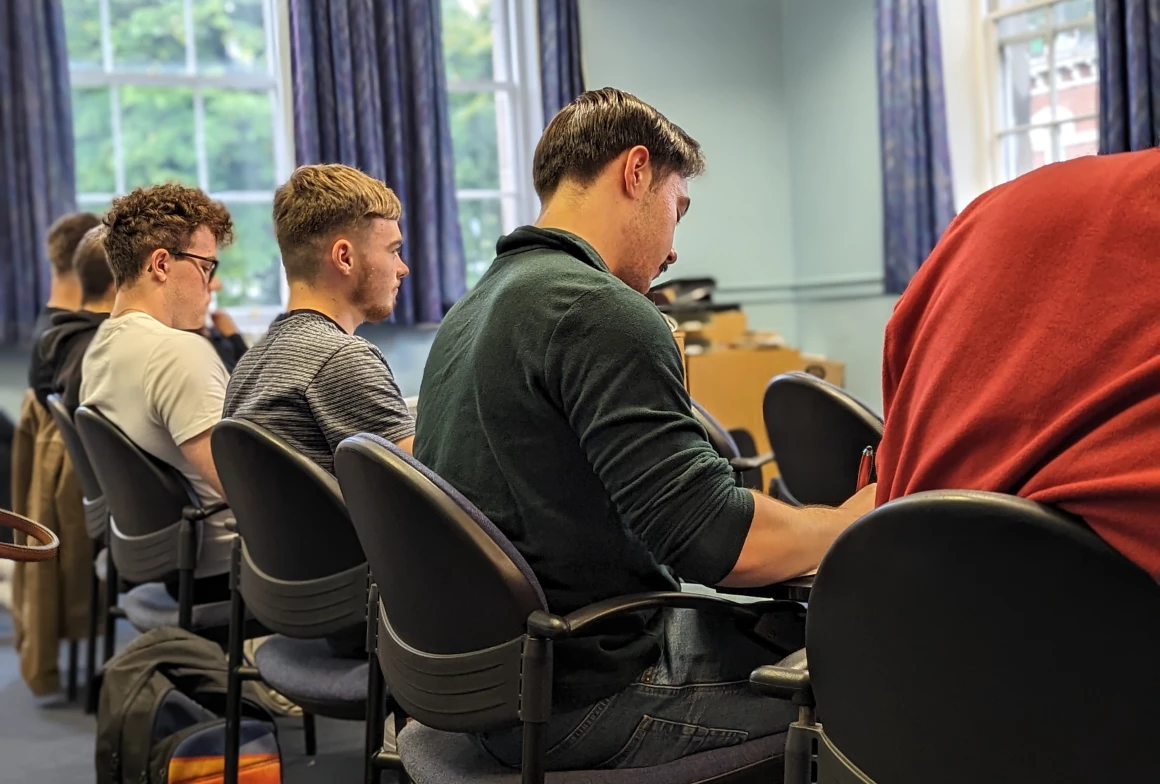Biblical Hebrew 1 (Option)
This module aims to provide an introduction to the basic elements of Biblical Hebrew grammar and syntax, building upon knowledge of the language gained at Level 4: Introduction to Biblical Languages.
Biblical Hebrew 2 (Conditional)
This module aims to bring to completion the introduction to the basic elements of Biblical Hebrew grammar and syntax, building upon Level 5: Biblical Hebrew 1.
Letters of Paul (Option)
The aim of the module is to help students further develop their interpretative skills as readers of New Testament texts in their English versions. Students will explore some of Paul’s ancient communicative contexts and their dynamics, including the values, virtues and ethics in play, to understand key debates that have arisen in the history of the reception and influence of Paul’s letters, and to consider how Paul’s letters can be relevantly and responsibly read today.
The Christian Doctrinal Tradition (Option)
This module aims to provide a carefully–sequenced learning experience, characterised by both breadth and depth, in historical theology and systematic theology, dealing with material as an integrated theological inheritance which can be adapted and applied in a creative manner to a variety of different contexts. The module will survey the major lociof Christian doctrine, structured around the Apostles’ Creed, and pay attention to both the tradition and application of those doctrines.
Philosophy of Religion (Option)
Many of the world’s major religions claim to believe in a God. In this module the student will engage with the perennial question of whether such a divine being really does exist or not, using the logical tools and analytic skills from philosophy. Central arguments both for and against the existence of God are examined, along with different overall frameworks in approaching this fundamental question.
Spirituality and Worship (Option)
Throughout the history of the Christian church, patterns of spirituality have had both important commonalities and significant differences. This module will explore the nature and varieties of Christian spirituality, with special emphasis on the place and practice of worship. The study is set in the context of other religious traditions as well as secular perspectives, engaging with contemporary understandings of spirituality. Students will evaluate the orientational and formative aspects of worship, assessing the relationship between worship and spirituality.
Thinking and Singing: An Introduction to the Wisdom and Lyrical Books of the Old Testament (Option)
This module provides an introduction to the books of Job, Psalms, Proverbs, Ecclesiastes, and Song of Songs. These books differ noticeably in content and style from all the other books of the Old Testament and even from one another. They are the principal representatives in the Old Testament of what is now known as wisdom and lyrical literature. “Wisdom” applies to Job, Proverbs, and Ecclesiastes, and “lyrical” relates to Psalms and Song of Songs.
Biblical Greek 1 (Option)
This module aims to provide an introduction to the basic elements of Biblical Greek grammar and vocabulary, expanding upon knowledge gained at Level 4: Introduction to Biblical Languages.
Biblical Greek 2 (Conditional)
This module aims to bring to completion a student’s understanding of the basic elements of Biblical Greek grammar and vocabulary, building upon knowledge gained at Level 5: Biblical Greek 1.
Christianity in Ireland since the 16th Century (Option)
This module provides an overview of the religious history of Christianity in Ireland from the sixteenth century to the late nineteenth century, through the study of select figures, movements, and events. This module aims to provide a carefully–sequenced learning experience, characterised by both breadth and depth, in order to cultivate a more historically–informed and sophisticated understanding of how religion has shaped modern Irish Christianity.
Life together – the Church as a community (Option)
This module is primarily concerned with the internal life of the church, both as an informal fellowship and, to varying degrees, as a well–structured institution. Both aspects have Biblical roots and a range of historical expressions. This module will enable students to appreciate the variety of legitimate ways of ‘being church’ and, in particular, to explore the theology and practice of pastoral care and discipleship.
The Major World Religions (Option)
The module surveys the four main non–Christian religions and their interaction with each other and with the contemporary western world. Students will develop a sympathetic and critical understanding of the significance of religion as a world–wide phenomenon and of the place of individual religions in the contemporary world. They will be able to outline the basic teachings of the four major non–Christian world religions. Students will also be able to assess non–Christian religions from the perspective of the majority religious culture in the UK and Ireland. Students will be enabled to wrestle with the lived tension between making universal truth claims and living in peaceful harmony.



